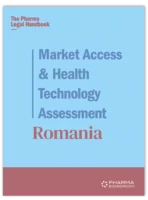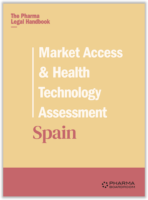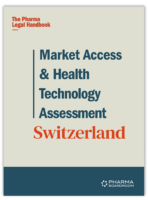Preclinical and Clinical Trial Requirements
Corral Rosales / Ecuador
As a general introduction, clinical trials are regulated in Ecuador via the Ministerial Agreement (MA) 0075-2017 and reform 0006-2020, which relates to regulations for approving, developing, monitoring, and controlling clinical trials. This regulation was enacted on June 30th, 2017. Other rules and regulations make MA 0075-2017 enforceable.
The Constitution of the Republic of Ecuador, in subparagraph d), 3, of Section 66, prohibits using genetic material and scientific experimentation that violates human rights.
Every person without discrimination has, concerning health, the right not to be the subject of tests, clinical trials, laboratory or research, without their knowledge and prior written consent, nor be subjected to tests or examinations diagnoses, except when the law expressly determines it or in case of emergency or urgency in which his/her life is in danger, as defined in article 7, literal l) of the Health Law.
The Code of Childhood and Adolescence, in Section 20, states: “Right to life. Children and adolescents have the right to life from the moment of conception. The state, society, and family must ensure their survival and development by all means. Medical and genetic experiments and manipulations may not be conducted on pregnant women, children, or adolescents, nor any technique or practice that endangers the lives or affects the integrity or integral development of any of those mentioned above.”
It is ARCSA’s responsibility “to approve clinical trials of medicines, medical devices, natural products for medicinal use and other products subject to registration and sanitary control based on regulations issued by the HM.”
1. Are clinical trials required to be conducted locally as a condition (stated or implicit) for marketing approval?
Clinical trials must be conducted under conditions that ensure respect for human dignity, human rights, autonomy, informed consent, the precautionary principle, personal integrity, privacy, confidentiality, equality, justice, equity, discrimination, cultural diversity, and the well-being of people. According to our law, the rights, safety, and well-being of individuals and society will prevail over scientific and economic interests. Therapeutic benefits and the risks and disadvantages for the subject of the trial and public health will be evaluated.
2. How are clinical trials funded?
Clinical trials are generally funded privately. To carry out a clinical trial in our country, all persons, whether public, private, national, or foreign, who are sponsoring the trial must request prior approval from ARCSA. ARCSA will also verify and inspect compliance with legal, ethical, and methodological aspects for developing the clinical trial in the country before, during, and after it is carried out and all aspects related to research technology.
3. What are the requirements for preclinical and clinical trial protocols? Who must approve the protocols?
To authorize a clinical trial, ARCSA will request the sponsor submit the necessary documents in Spanish or its official translation, duly legalized. Requirements for preclinical and clinical trial protocols are those defined in Section 8 of MA 0075-2017. Approval for conducting clinical trials is made by ARCSA, which must abide by the Constitution of the Republic of Ecuador; the directives contained in the Declaration of Helsinki (PARF network); CIOMS guidelines; and Good Clinical Practices established by agreements to which Ecuador is part of.
4. What are the requirements for consent by participants in clinical trials?
Participants must voluntarily participate in clinical trials, be previously informed about the trial, and accept it through an informed consent document. These people may or may not suffer from diseases and be aware of the possible treatments, risks, being able to withdraw the consent treatments, and risks of being able to withdraw their consent at any time. The research subjects will be supplied with the investigational product or the product used as a control once their informed consent or that of their legal representative has been obtained in the corresponding cases.
Clinical trials conducted with senior people, people with disabilities, people deprived of their freedom, and those suffering from catastrophic and highly complex diseases because they are considered priority or vulnerable care groups, must be authorized by the Ethics Committee and should be of specific interest and limited to those that by their nature can only be carried out with these population groups.
Confirming that the participant is not pregnant is basic for women of reproductive age who have consented to participate in a clinical trial before starting it. Access to and use of an effective contraceptive method must be ensured during the development of the clinical trial, which will be provided at no cost by the sponsor during their participation in the study, including male subjects.
People with disabilities may be subjects of clinical trials, with the approval of the Ethics Committee evaluating the clinical trial.
For clinical studies conducted in Indigenous towns and on Indigenous peoples, in addition to individual informed consent, a prior community consultation should be performed, which should be favorable to the completion of the study. Additionally, the community authorities’ approval in the case must be obtained. Said approval must be included in a document duly signed by these authorities, a copy of which will be attached to the procedures for requesting authorization to conduct the clinical trial. It will not be possible to carry out clinical trials in villages in voluntary isolation.
In these clinical studies, sponsors and researchers should develop culturally appropriate ways and means with anthropologists, sociologists, and translators to communicate all the necessary information regarding the trial to the research participants and meet the standards required in the informed consent process. In addition, the research protocol should describe and justify the procedure they plan to use to communicate the information to the subjects under investigation.
5. May participants in clinical trials be compensated?
In exceptional cases, clinical trial participants may be compensated economically, considering they must be healthy adults. Additionally, if pregnancy occurs during the clinical trial, the mother will be excluded as a research subject; the study sponsor will also monitor the patient and the newborn until the newborn is at least two (2) years old. The sponsor will repay both the mother and the newborn in case of subsequent damage produced during the pregnancy or caused to the newborn due to the execution of the research.
6. How are participants in clinical trials protected and indemnified against any harm that arises as a result of participation in the trial?
ARCSA regulates Good Clinical Practices (BPC) that must be observed during trials. ARCSA will periodically inspect and control BPCs complied with under penalty of declaring the trial’s continuity. Sponsors must establish a plan to remediate any nonconformity or ensure the participant’s safety.
The sponsor must provide participants with a liability insurance policy. In cases where such policy does not cover/apply, the sponsor will be responsible for relief of any harm or damages suffered by the participant. The sponsor will guarantee and provide free medical assistance until all health problems derived from their participation in a clinical trial are solved.
The sponsor must provide economic compensation to the participant in case of evidence of harm or damage and its causal relationship with the product under investigation.





































































